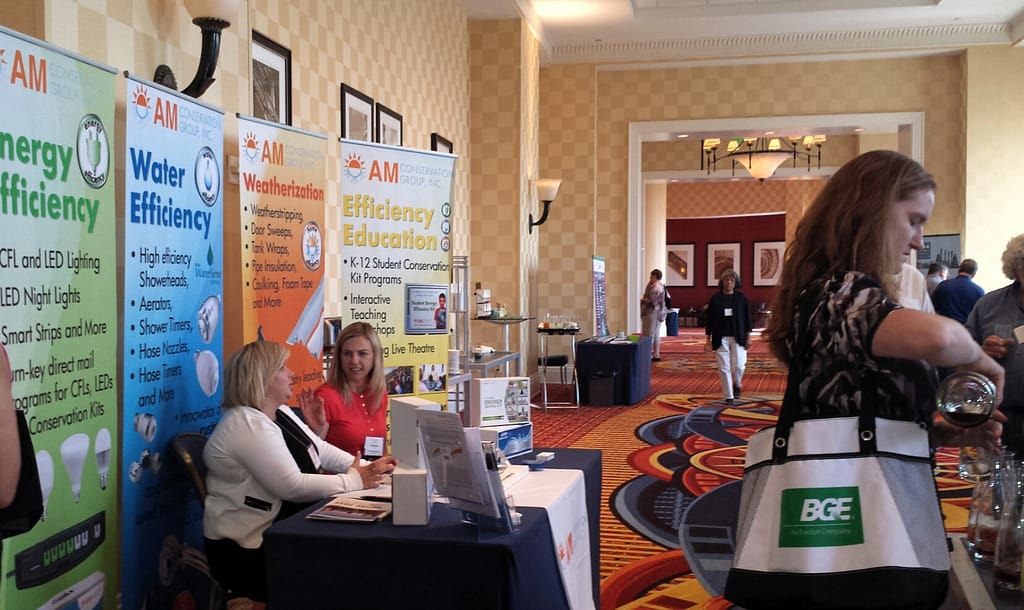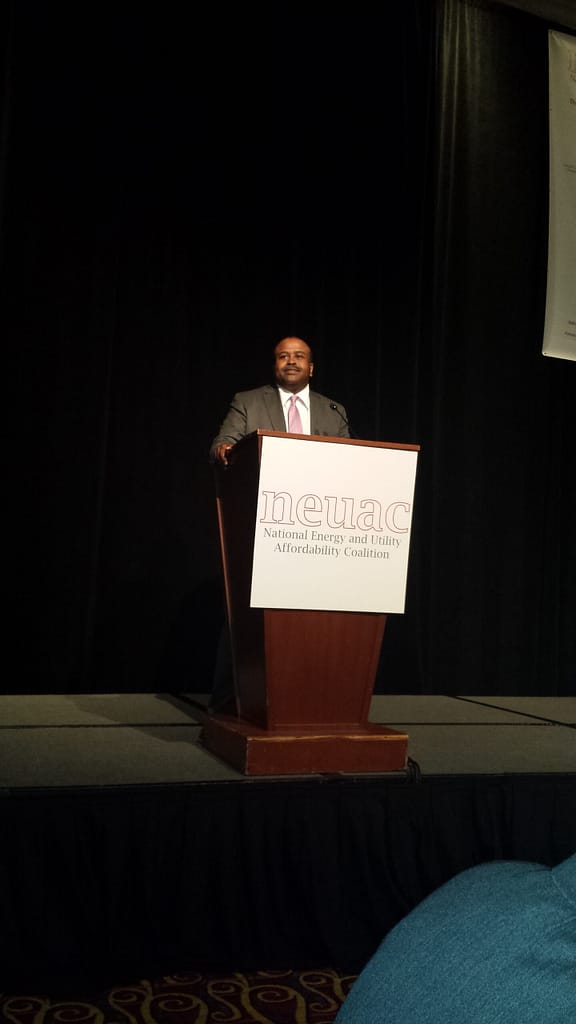2015 Conference Archive
June 22 – 24, 2015 | Baltimore, MD

MONDAY, JUNE 22, 2015
11:00 a.m.-12:15 p.m | Session 1
1A – What “Unacceptable” Means – How to Engage with Impact
1B – Achieving High Savings from Low-Income Energy Efficiency Programs
1C – Competitive Energy Suppliers – What Consumers Need to Know and Why
1D – Prepay Panel #1 – Prepay 101
1E – Innovative Distribution Channels to Provide Efficient Products to Hard-To-Reach Customers
1F – Successful Promotional and Fundraising Practices for Fuel Funds
1G – Dialogue with Federal Officials: Tribal Issues and Technical Assistance
No presentations available
2:00PM – 3:15PM Session 2
2A – A “Top 10” Approach to Diversifying Your Fundraising Mix
2B – 6 Months – 5,000 Multi-Family Homes: Quick-Start Program Strategies
2C – Dialogue with Federal Officials – Agency
No presentations available
2D – Prepay Panel #2 – Customer Protection
2E – Shaking It Up: New & Nimble Designs for Low & Moderate Income Programs
2F – Meaningful Corporate Partnerships for Fundraising Success
No presentations available
2G – Collaborating Within: Weatherization and the Housing Connection
No presentations available
3:45PM – 5:00PM Session 3
3A – How to Create a New Database and Why It Matters
3B – RI Statewide Energy Challenge: Find Your Four!
No presentations available
3C – Dialogue with Federal Officials – Vendors
No presentations available
3D – Cultures of Energy
3E – Engaging Low-Income Customers around the Smart Grid
3F – Tribes and Climate Change: Prospects for Energy Futures on Tribal Lands
3G – Effective Congressional Advocacy

TUESDAY, JUNE 23, 2015
9:00AM – 10:30AM | Plenary
Plenary Session: Digital Advocacy in LIHEAP
4A – Taking Customer Assistance to the Next Level: Designing Customer Centric Programming
4B – Communities in Action – Energy-Efficiency Education Designed for Parents’ Community
4C – LIHEAP: The Basics and Beyond
4D – Using Data to Profile Low-Income High Energy Users
4E – Baltimore City Initiatives – Service Coordination and Energy Efficiency
No presentations available
4F – Who Are You?: Branding, Identity, and Language for Fundraising
No presentations available
4G – Best Practices: Fundraising and Administering LIHEAP
2:00PM – 3:15PM Session 5
5A – Effective Oral Presentations
5B – Health-Related Benefits of Low-Income Weatherization & Healthy Homes
5C – Understanding the Impact of Tribal Nations: Developing Federal Policy and Budget
5D – Walk-A-Mile Simulation
5E – Beyond Weatherization: How Innovative Program Strategies Can Enhance Core Low-Income Programs
5F – Big Data, Big Donors: Using Data Analytics to Structure Fundraising Programs
5G – The ABC’s of Home Heating Affordability: Analyze, Budget, Conserve
3:45PM – 5:00PM Session 6
6A – Volunteers, Recruiting, Training and the Benefits of Volunteerism
6B – Neighborhood Blitz
6C – LIHEAP Performance Measures
No presentations available
6D – Walk-A-Mile Simulation (continued from Session 5D)
6E – Isolated Tribal Communities: Accommodating the Disabled, Elderly & Those with Medical Needs
6F – Utility & Nonprofit Relationship Models for Fundraising
6G – Getting with the Times: Transforming Utility Bill Assistance from a Traditional Service Delivery Model to a Technology-Driven Process
WEDNESDAY, JUNE 24, 2015
10:00AM – 11:30AM Plenary
Plenary Session: 111D Panel

Disclaimer: National Energy and Utility Affordability Coalition (NEUAC) Material Ownership
The National Energy and Utility Affordability Coalition (NEUAC) wishes to clarify that it does not claim ownership of any materials included in these conference presentation materials. These materials may include images, text, graphics, videos, or any other content used in these presentations.
This disclaimer is intended to underline NEUAC’s commitment to integrity and ethical use of intellectual property while sharing valuable information and training resources.
For any questions, concerns, or inquiries regarding the use of materials in NEUAC’s presentation materials, please feel free to contact us at info@neuac.org. Thank you for your understanding and cooperation.